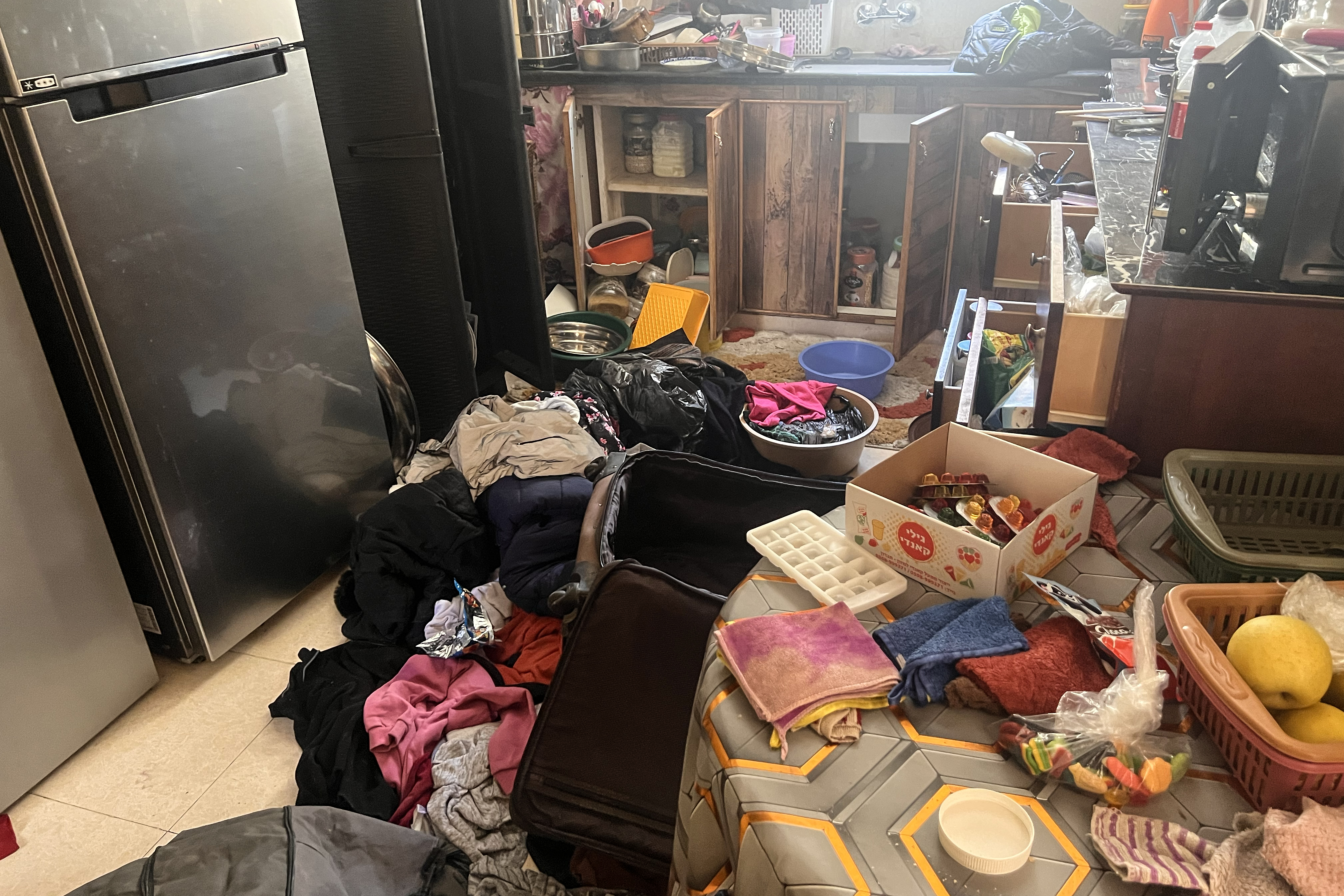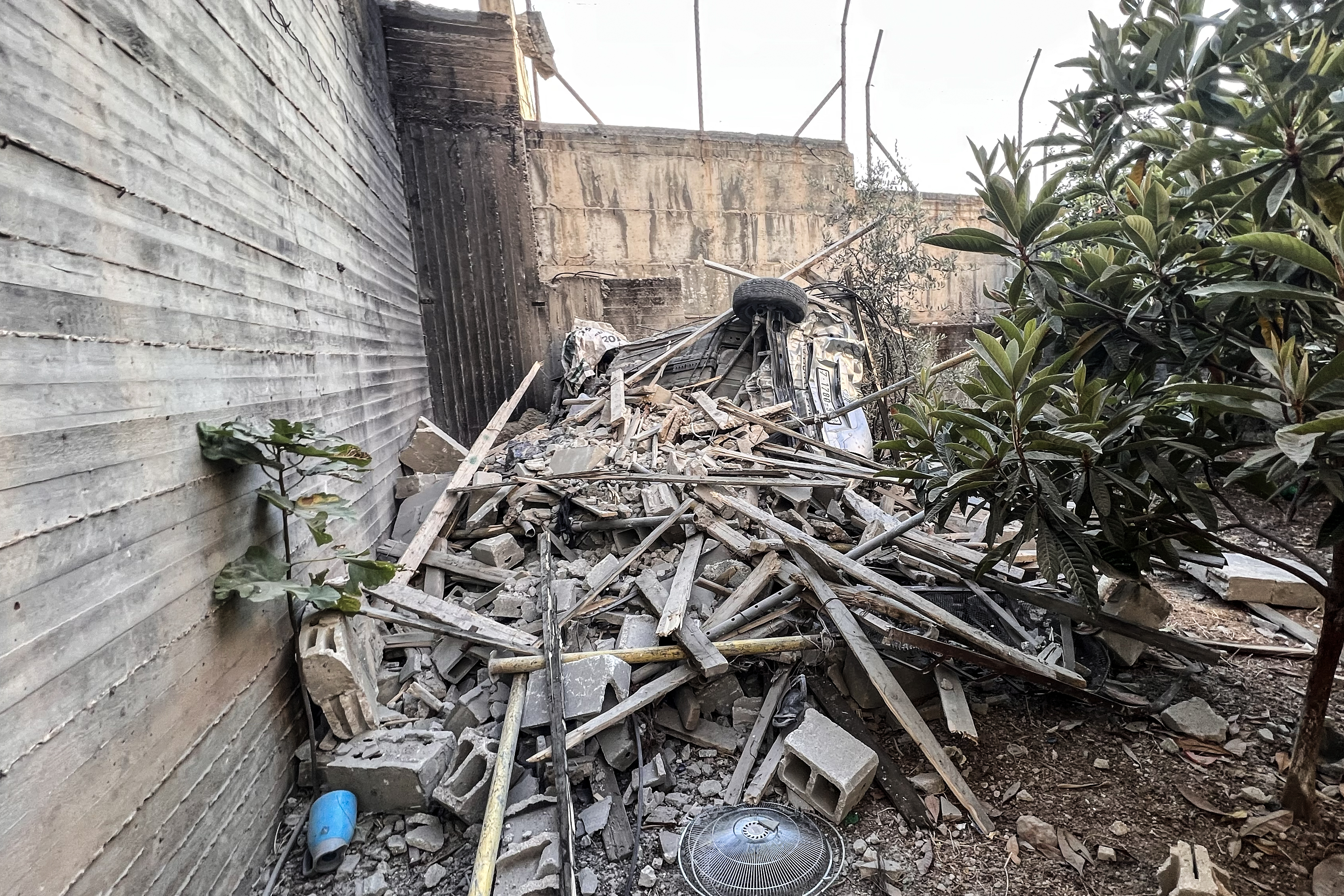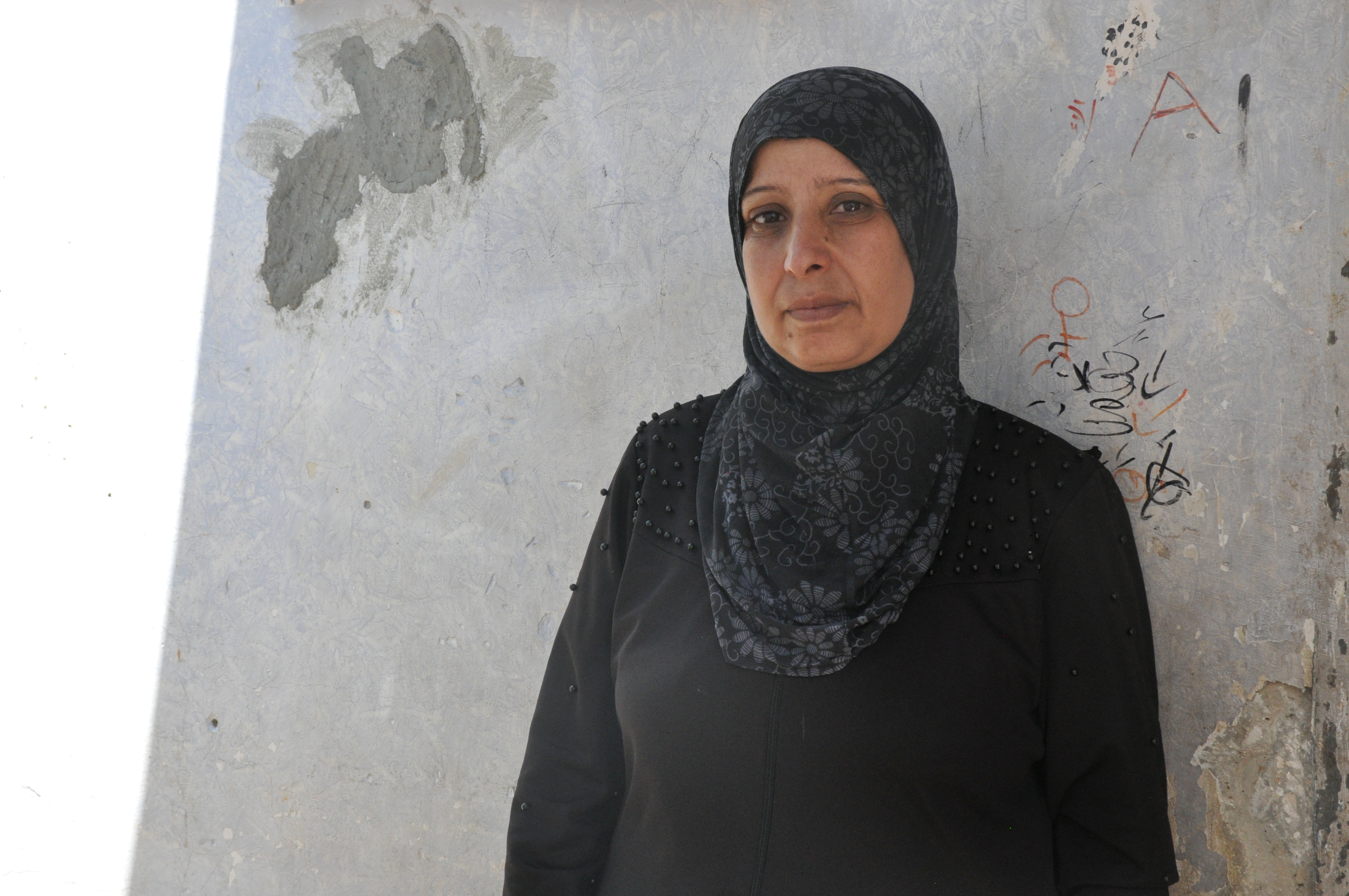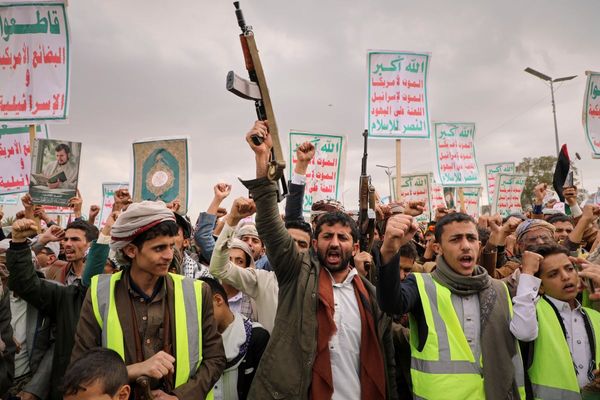
Jenin, occupied West Bank – The inside of Bassem Tahayneh’s home in the Jenin refugee camp appears as though a tornado had blown through it.
The ceiling-high closets inside his daughter’s bedroom were brought down face-first on top of the beds; his four TV screens were pulled off the walls and smashed; the tiles on the floors were ripped off, and wires connecting the house to the power grid were cut.
Tahayneh, 41, is one of thousands of Palestinians in the camp who were forced to leave their homes during an Israeli army assault that began on Sunday, only to return days later and find the inside of their homes almost completely wrecked.
“Nothing in the house is fit for use. It’s a disaster,” the father-of-three told Al Jazeera the morning after the Israeli army withdrew from the camp, just over two days after the attack began.
“It will take me at least a month to repair everything, so that my family and I can live here again,” Tahayneh continued. “I couldn’t bring my wife and kids back to the house yet. I couldn’t let them see this wreckage.”

The attack on the Jenin refugee camp in the northern Israeli-occupied West Bank was the largest in two decades.
The Israeli army – for the first time since 2006 – launched a large-scale aerial attack, using unmanned, missile-loaded planes to shell parts of the camp, before soldiers raided on foot and remained there for approximately 48 hours. At least 1,000 soldiers and dozens of armoured vehicles participated in the assault.
The Palestinian Ministry of Health declared that 12 Palestinians, including three children, were killed in the attack, while at least 120 others were wounded, including 20 who remain in critical condition.
At least 3,000 people were forced to flee their homes in Jenin for fear of being killed, according to the Red Crescent.
Tahayneh was forced to leave with his family in the Hawasheen neighbourhood of the Jenin refugee camp on the first day of the assault.
“The army stood at the entrance to the neighbourhood and started shouting through the speakers: ‘All of the people in this neighbourhood, you have 10 minutes to leave your homes. We will shell all the homes,’” he recalled.

Homes as military bases
Like many homes inside the camp, Tahayneh’s house was not only wrecked; it was also used as a base for the military from which to target Palestinian fighters.
Sizeable holes were drilled into the outer walls of a large number of homes that soldiers used to position their snipers, while dozens of empty bullet casings lay strewn across their floors.
Food inside their homes was eaten and tossed everywhere, including the floor, while Israeli army medical and military equipment such as gauzes and wires were found left behind.
“When we came back, we found that they had blown our front doors open and that they took over our homes and used them as bases. There is a giant hole in the wall of my bedroom that they used for their snipers,” said Tahayneh, noting that the soldiers “ate our food and drank our water”.
Even the box of date cookies that his wife had made for the Eid al-Adha holiday that ended last week was opened and eaten out of.

The attack on Jenin comes as part of Israel’s efforts to crush re-emerging Palestinian resistance to decades-long Israeli military occupation.
The Jenin refugee camp is home to at least 23,600 Palestinians who were expelled from their original homes in 1948 during the Nakba, or catastrophe – the ethnic cleansing of Palestine by Zionist militias to create the state of Israel.
Jenin has seen similar attacks in the past, most notably in 2002. In April of that year, during the second Intifada, or mass uprising, Israeli forces backed by fighter jets invaded the camp with more than 150 armoured tanks and bulldozers. A battle with resistance fighters ensued for more than 10 days, in which at least 52 Palestinian civilians and fighters, and 23 Israeli soldiers, were killed.
During that raid, the Israeli army destroyed more than 400 homes and severely damaged hundreds of others, displacing over a quarter of the population of the camp which was later rebuilt by the United Nations.
‘They were in our house for 36 hours’
In another corner of the camp, Najmat Abu Sirriyeh said that Israeli soldiers prevented her family of seven from leaving their home as they used it to gather detainees.
“They were in our house for at least 36 hours,” Abu Sirriyeh told Al Jazeera from her partially destroyed home in the camp.
Israeli armoured tractors demolished the entire wall around their house, the rubble of which fell onto the trees and plants they had grown in their garden. The army also dumped an entire car and a mountain of rubble into their backyard.
“They separated the men and the women. They handcuffed all the men and put them in a separate room. They would then arrest youth and even elderly men from the neighbourhood and bring them into our house. They would handcuff them, blindfold them and throw them onto the ground in one of the rooms, and beat them,” she recalled.
The mother of four said the soldiers slept in the living room of their house and forbade them from moving. “We did not sleep or eat. We even had to ask for their permission to use the bathroom!” she said.
Abu Sirriyeh also said that the army confiscated all their phones. “We were not allowed to contact anyone – not to even let our relatives know that we were okay.”

While the destruction of infrastructure and roads during the latest attack was limited to certain neighbourhoods, many homes in the camp were raided and their contents were ruined to some degree – even those not used as bases.
Mother-of-six Lubna Fraihat was forced to leave her home on the second night of the attack. When she returned with her family, they found their home had been broken into and turned upside down. All their belongings were dispersed across the floor, while their closets were broken and their furniture flipped.
Fraihat, who works as a cleaner, had already suffered another calamity. She explained that her husband, 50-year-old Rabee, was shot by the Israeli army as he attempted to pull a fighter who was injured on the street outside their front door, in order to give him first aid and call an ambulance.
“My husband heard someone shouting, someone injured on the street. He was trying to pull the man into our house when suddenly they shot my husband in the side,” she said, her voice trembling.
Her husband’s blood still stains the floor of the yard at the entrance to her home. He remains hospitalised in the Rafidia hospital in Nablus in a critical condition.

After her husband was evacuated in an ambulance, Fraihat and her four daughters locked themselves up in one of the rooms out of fear for an entire day with the sound of shelling and explosions outside.
“We all stayed in the children’s room because it’s the safest room, in the back of the house. Whenever we would leave the room or make noise, they would shoot live ammunition at the house,” she said.
Pointing to her bathroom, the floor of which is cluttered with glass, Fraihat said soldiers shot directly into her bathroom while she was inside, before she and her daughters decided to leave.
“My daughters said they couldn’t take it anymore – we felt that we were going to die.”







